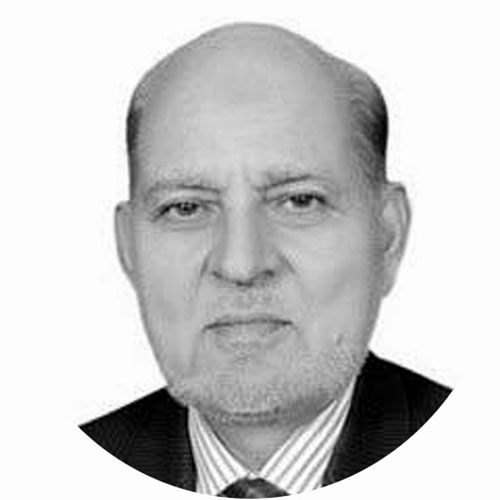Col Muhammad Hanif (R)
IN August 1947, India was divided by the British India Government into two dominions based on the two-nation theory propounded by Quaid-i-Azam that the Muslims and Hindus, being two separate nations with not only different but opposing cultures and religions could not co-exist as the history of the past communal violence between the two in the united India had proved. Moreover, it was proved during the freedom struggle that the top Hindu leaders, like Gandhi and Nehru, had refused to guarantee the constitutional rights to the Muslims in self-governing India, as they wanted Hindu-dominated India. Since its creation, India has endeavoured to adopt overbearing policies with respect to its smaller neighbours. India’s first target was Pakistan, when India occupied a part of the Muslim majority princely state of Jammu and Kashmir through its military intervention on 27 October 1947 which otherwise was supposed to become part of Pakistan as per the partition formula.
This situation resulted into a war between Pakistan and India, which ended through the intervention of the UNSC which passed a resolution {No 47/5 January 1949} stating the final decision that Jammu and Kashmir should become a part of Pakistan or India will be made by holding a UNSC-supervised plebiscite. But so far, India has failed all efforts of the UNSC to hold the plebiscite in Jammu and Kashmir. India’s efforts to dominate the policies of the other smaller South Asian countries are also evident. India has kept Bhutan under its full grip by controlling its domestic and foreign policies. Bhutan’s foreign policy is always approved by the Indian government via the Bhutan Embassy in New Delhi. India also controls Nepal’s domestic and foreign policies by pressuring it by closing its trade routes to and from India, whenever deemed fit by it. Over a period of time, India has closed Nepal’s trade routes thrice. In 1971, to weaken Pakistan to compromise on Kashmir and the Indian hegemony, India exploited Pakistan’s internal political differences over the general election held in 1970, and used the then East Pakistani leaders’ differences with the West Pakistani leaders over the formation of the government, and then it supported the separatist elements through open military aggression in November/December 1971 and dismembered Pakistan. India’s that aggression created serious geopolitical reverberations in South Asia that resulted into both countries attaining the nuclear weapons capabilities, displayed by conducting their nuclear explosions in May 1998.
In the 1980s India intervened in Sri Lanka militarily supposedly to help Sri Lanka counter and fight the then Tamil Tigers’ insurgency, whereas at the same time India secretly kept financing and providing weapons to the Tamil Tigers. India has also interfered in Maldives by influencing its elections and the formation of the governments. Since creation of Bangladesh in 1971, India has dominated that State in all areas of influence, from the domestic to the foreign policies, at the same time usurping the Bangladeshi rights over Teesta River waters by not agreeing to sign a workable agreement since 1972. With the coming of the Modi led, RSS Hindutva ideology inspired, BJP government into power in India since 2014, whereas India has gone belligerent with its smaller neighbours, it is also ridden with its internal issues, where RSS inspired Hindus are trampling the rights of Hindu Dalits and other religious minorities under their feet. In this context there have been numerous incidents of lynching of the Muslims by the Hindus over the rearing and transporting of the cows. The massacre of the New Delhi Muslims by the Hindu mobs and the police during the Muslims protest against the contentious CAA is well documented. And no culprit has been punished so far.
Likewise, Indian courts have also declared Narendra Modi and his colleagues’ as innocent, in the case of the Muslims’ massacre in the Gujarat State in 2002, when Modi was the Chief Minister. The issue of demolition of Babri Mosque and acquittal of all the accused by the Indian judiciary is an eye opener for the world. This all indicates that under the RSS motivated Modi-led BJP government in India, not only other religious minorities in India are under threat; even the existence of the Hindu lower castes is in danger. Then the world leaders and the UNSC’s veto powers need to seriously consider the Modi Government’s extreme step taken in the occupied Jammu and Kashmir on 5 August 2019. The Modi government has converted the UNSC declared disputed status of the state by declaring it as India’s permanent part by dividing it into two union territories under an Act of the Indian Parliament, which is in clear violation to the UNSC resolutions on Kashmir, that vow to hold a plebiscite in the Jammu and Kashmir State to decide, whether the State should join Pakistan or India. To crush the Kashmiris’ reaction the Modi government is using above 900,000 troops to carry out the genocide of the people of Jammu and Kashmir.
India is also sponsoring terrorism in Pakistan by using the Afghan soil. Then India is provoking Pakistan almost on a daily basis by carrying out the ceasefire violations across the LoC causing many civilian casualties in AJ&K, and it also continues to threaten Pakistan for carrying out surgical strikes across the LoC. The above discussion indicates that under the RSS- led Modi regime, while BJP’s policies are a threat for India’s internal unity and stability, and the sovereignty of South Asia’s smaller states is at stake, India’s extreme steps taken to change the status of occupied Jammu and Kashmir and its war mongering phobia with the nuclear Pakistan, shows that India is also a threat to the regional peace, as war between Pakistan and India over Kashmir, being a nuclear flash point, is a real possibility.
—The writer is a former Research Fellow of IPRI, and Ex Senior Research Fellow of the SVI, Islamabad.










